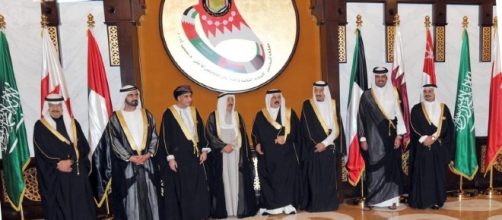On Monday morning, the government of Saudi Arabia suspended its diplomatic relations with Qatar. Soon afterward, other countries in the region cut their Diplomatic Ties. Egypt, the United Arab Emirates, Yemen, Bahrain, and Libya have all cut their ties with Qatar.
The Saudi government has claimed that Qatar's covert support for foreign terrorist organizations. Qatar has since denied the allegations, claiming the cut in diplomatic ties was entirely unjustified and an attempt to meddle in the internal politics of Qatar.
This situation has put a strain on not only Qatar's role in the regional and international stages, but on its economy as well.
Transportation and Food
After cutting ties with the country, Egypt, the UAE, Saudi Arabia, and Bahrain all blocked Qatar from using their air, sea, and land links. Seeing as Qatar is a peninsula that relies on such links for trade and commerce, this may have significant impacts on the Qatari economy.
By being blocked from the airspace of the surrounding countries, Qatari planes are now forced to make large detours on trips flying West. This will cause them to use more fuel on voyages to Africa, Europe, and North America, which may result in higher ticket prices for passengers.
Saudi Arabia's General Authority of Civil Aviation also revoked Qatar Airways's license and demanded that its offices be closed within 48 hours.
This will undoubtedly hurt Qatar's airline industry, especially if more countries are to follow Saudi Arabia's lead in doing so.
Qatar also relies heavily on Saudi Arabia for food, making the blockade of its land border with the kingdom an issue of human security. Although the Qatari government has attempted to reassure its people that they had enough food in reserve, it is unknown exactly how long that food will last for. If the reserves run out before the diplomatic crisis is solved, Qatar may be looking at a food shortage in the future.
The Qatari Riyal Takes a Hit
Businesses and banks from countries that cut their ties with Qatar have been hesitant in continuing business with Qatari banks while the situation continues to unfold.
A Saudi banker has even claimed that the central bank of Saudi Arabia issued a memo stating that banks should be wary of transactions with Qatari banks and businesses. Although the memo did not explicitly tell bankers to stop doing business, it shows that economic relations between the two countries will soon mirror its diplomatic relations.
The Qatari Riyal, the currency of Qatar, is also under pressure after investors feel uncertain about Qatar's future. The exchange rate between the US Dollar and the Qatari Riyal is now at 3.6470, the lowest it has been since last June.
The government hopes that its reserves and natural gas production will be able to keep the economy afloat, but international agencies speculate that further rifts in Qatar's trade and commerce may cause the nation to spiral into debt.
International Response
Although many regional players have followed Saudi Arabia's lead in cutting ties with Qatar, Kuwait seems to be playing a different angle.
Kuwait's emir, Sheikh Sabah Al Ahmad Al Jaber Al Sabah, flew to Saudi Arabia Tuesday to meet with King Salman of Saudi Arabia to discuss how to end this diplomatic rift. Kuwait seems to be taking on the role of mediator in this situation, hoping to bring stability back to the Gulf. The last thing Kuwait wants is for an escalation of hostilities that could lead to possible military confrontation if tension increases and the situation is not resolved.
United States president Donald Trump responded to the crisis by issuing one of his famous presidential tweets, writing that on his last trip to the Middle East, leaders "pointed at Qatar" when discussing state sponsored terrorism.
Seeing as Qatar is home to the Pentagon's largest military base in the Middle East and is part of the Department of Defense's key assets in the fight against ISIL, many suspect that the US's current administration may be divided on how to deal with this issue. The Pentagon is also engaged in several arms deals with Qatar, which makes the situation even more tricky for the administration.
It is unclear what role the United States will play as this situation develops, but as a world leader, we can expect the United States to develop a more firm stance on the issue in the coming days.


